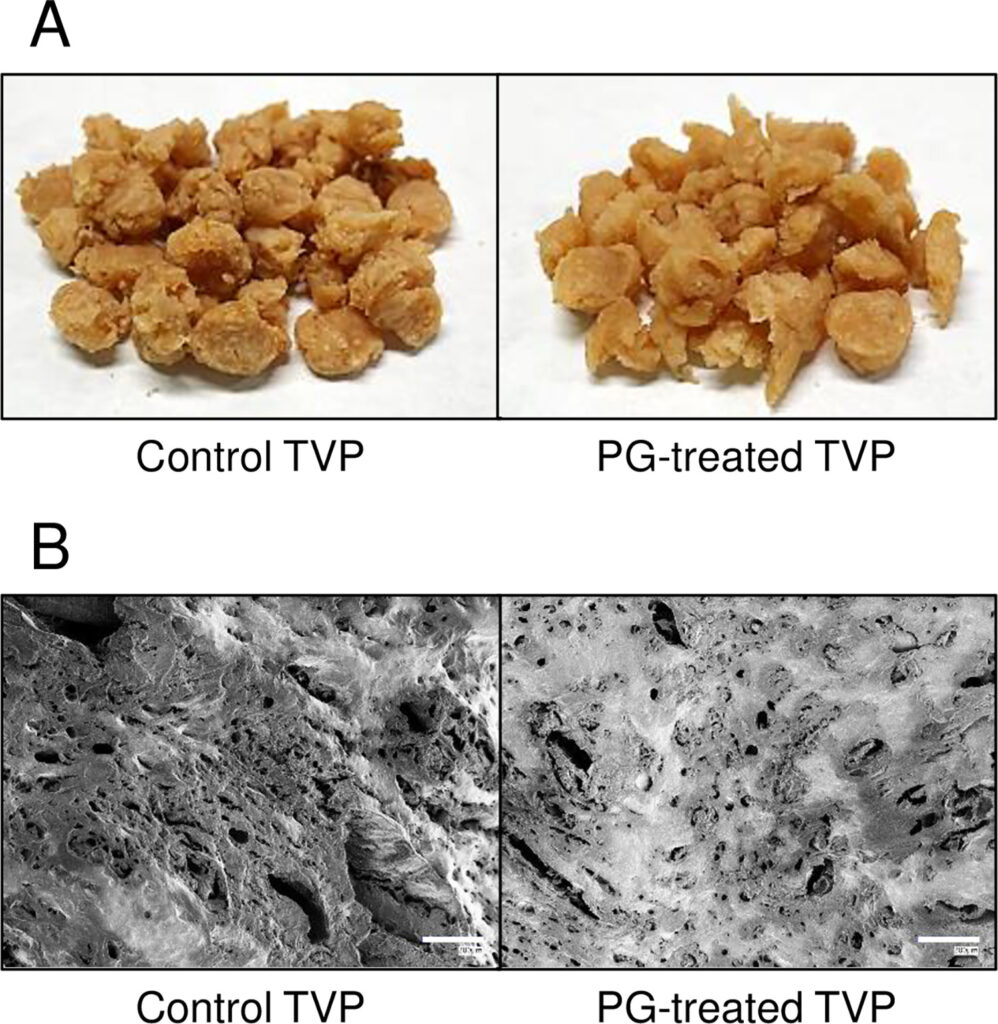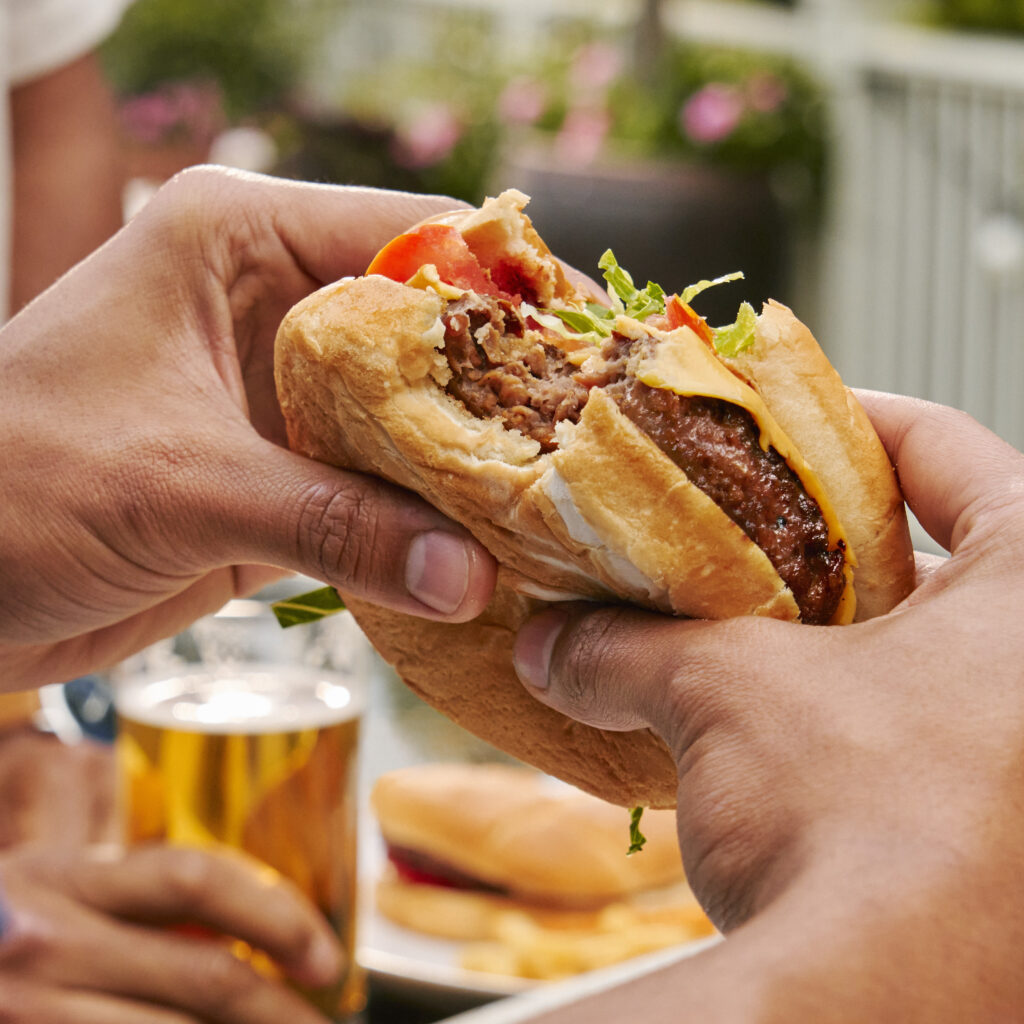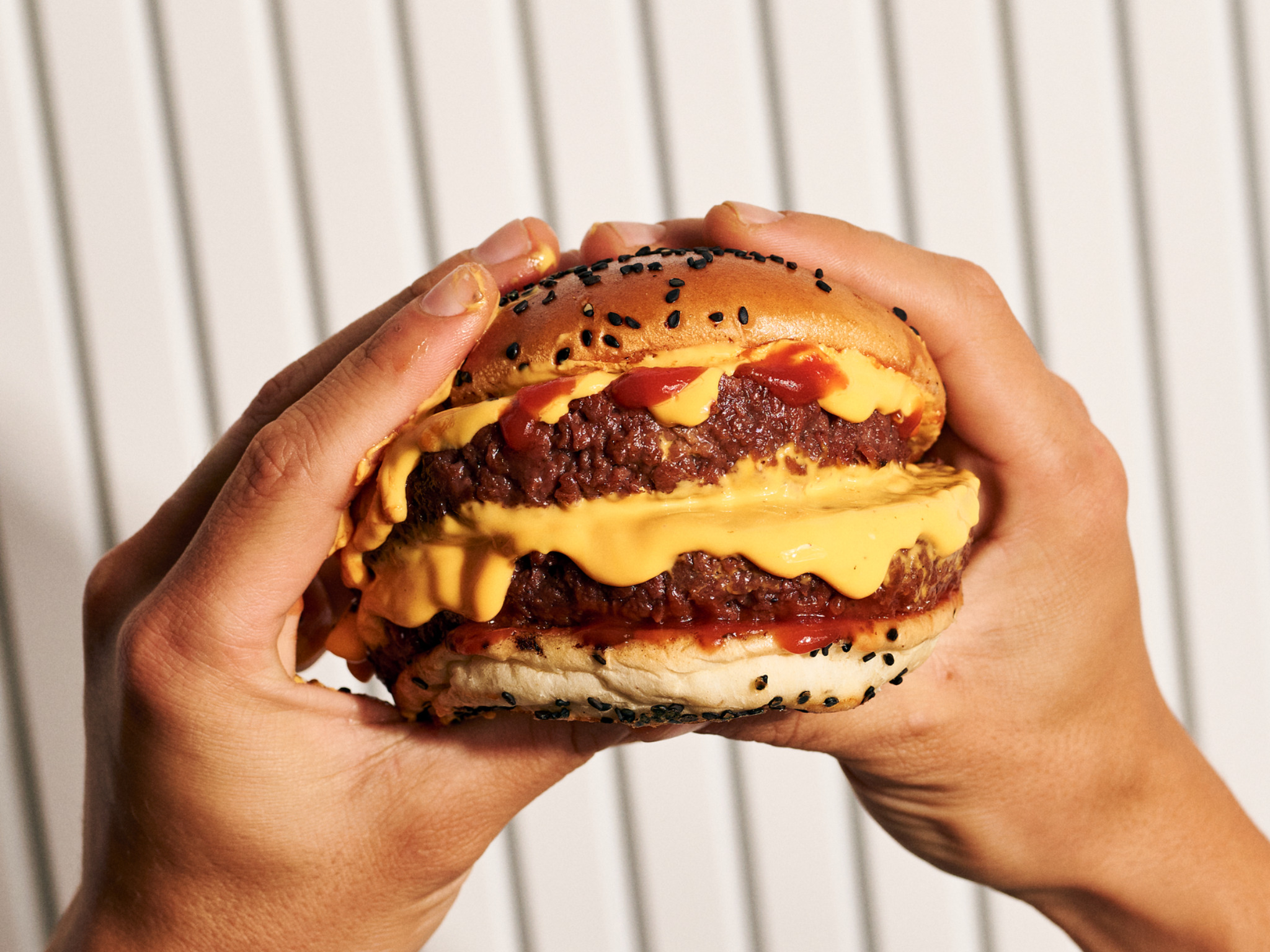New Research Promises Meatier, Juicier, Tastier Vegan Burgers with Clean-Label Process
5 Mins Read
What if your vegan burgers could be juicier, meatier and less processed? Some scientists have found a way to do just that, using an enzyme that breaks down amino acids to allow burgers to retain more moisture and get rid of a lot of the beany flavour associated with soy protein.
Last month, research by scientists at the Texas A&M College of Agriculture and Life Sciences explored people’s preferences when it comes to food textures, based on how their mouths processed what they ate. When it came to burgers, juiciness was a desirable characteristic, as was a lack of greasiness. A rubbery or chewy mouthfeel was a no-no.
Now, food scientists at Japan’s Amano Enzyme Inc. Innovation Center have come up with a way to make vegan burgers that everyone, with a trick to make it juicier, meatier and more easily digestible, along with a clean-label formulation and fewer ingredients.
Published in the Plos One journal, the study involved heat-treating soy protein with an enzyme called protein-glutaminase, which breaks down amino acids by turning glutamine into glutamic acid, resulting in a burger with multi-pronged benefits.
How the scientists assessed the burgers’ properties

The researchers experimented with soy-based textured vegetable protein (TVP) and soy isolate, treating them with the protein-glutaminase at 50°C for three hours, then boiling the solution for vie minutes to stop the reaction. This was to find out how much deamidation – the chemical process where an amino acid in a protein (glutamine in this case) is converted into an ammonia molecule (glutamic acid, or glutamate).
Then, the scientists sought to explore how the proteins would perform in oil or water, mixing the dried proteins in the liquids and letting them sit at room temperature for 30 minutes. These were spun to separate the solids from the liquids, which allowed the researchers to calculate how much water or oil these proteins could hold on to per gram of protein. They also assessed the emulsifying properties of the proteins by mixing them with canola oil.
After all the testing, they began preparing the optimal plant-based burger. To make the patties, they took dried TVP and soaked it in water for 30 minutes. This rehydrated mixture was then treated with the protein-glutaminase for three hours at 50°C, and complemented with methylcellulose – a binding and gelling agent commonly used in meat alternatives. Then, they added some water, canola oil and potato starch.
The ingredients were blended and shaped into a dough-like patty, which was rested for two hours at room temperature. Then, the burgers were grilled and cooled to be assessed. The researchers found that the enzymatic activity stopped after grilling, which means in terms of regulatory rules, the enzyme isn’t an additive.
What enzymes do to soy protein

The results were encouraging. The enzyme-treated burgers saw a reduction in water and oil loss during cooking compared to the control patties (those that skipped the enzyme process). Similarly, emulsion loss decreased in the former. This meant that liquid retention was higher in the protein-glutaminase-treated burgers, and that led to a juicier texture. And while both patties had similar chewiness, the cohesion and springiness of the deamidated TVP burgers was higher (and the control patties were harder).
Unexpectedly, the scientists also found that there’s a way to reduce the beany off-flavour often associated with soy protein, which they said “limits the consumer acceptability” of plant-based meat. This characteristic is caused by a mix of multiple volatile compounds derived from fatty acids and their derivates during the growth and processing of soybeans.
While methods like breeding, fermentation, and physical, chemical and genetic engineering can be a solution, they’re not sufficient enough. The study discovered that by washing the TVPs before forming them into a patty, one can reduce that beany taste by 58-85% with the enzyme-treated burger.
Finally, there were benefits for digestion as well. The deamidated TVP patties had a higher amount of free amino nitrogen (FAN), which made it easier to break down with digestive enzymes and absorb nutrients.
The race for better vegan burgers

By using this technique, the researchers said plant-based meat manufacturers can use less saturated fats (like coconut oil) and eliminate the need for flavour enhancers, resulting in cleaner-label formulations. This is key as the focus on clean eating increases – a global survey in 2020 revealed that more than half of respondents find it important for products to have a short ingredient list, with follow-up research finding that 78% would spend more money on products with ‘natural’ or ‘all-natural’ packaging claims.
Plus, texture and taste are increasingly crucial to plant-based meat consumers. A 2022 international poll revealed that alt-meat’s taste and texture are as important as their conventional counterparts for over 75% of consumers, but only about 60% were actually satisfied with the mouthfeel of vegan analogues.
It’s why researchers have been attempting to find ways to break through these barriers and deliver more satisfactory products. A study published in the Journal of Agricultural and Food Chemistry earlier this year, for example, suggested that fermenting alliums like onions, leeks and chives with fungi can produce natural chemicals resembling the savoury scent of meat.
Glutamates (which is what the glutamine is converted into by the protein-glutaminase) are responsible for the characteristic umami flavour in cooked meats, and it’s a substance naturally found in foods like soy sauce, mushrooms and tomatoes. It’s this feature that manufacturers attempt to amplify with monosodium glutamate (or MSG).
“Enhancing the juiciness of plant-based meat alternative patties using protein-glutaminase might be a new strategy for meeting new clean-label requirements,” concluded the enzyme study. “This strategy could help food manufacturers develop clean-label PBMAs that are more attractive to consumers.”




